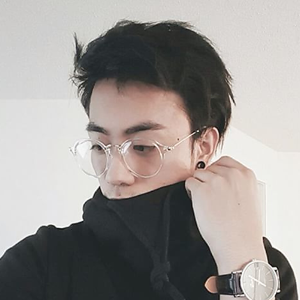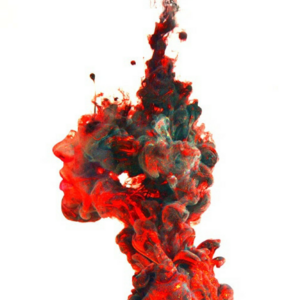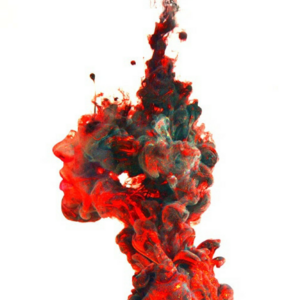Figures rushed in.
Yang clutched his shoulder. Arms pulled him back.
“Why did you send him in here?” a voice asked.
Blinding pain coursed through Yang. If there was a response, he didn’t hear it – deafened by the thrum of his thumping heart. He struggled for breath – the same air that had felt so light and effortless moments ago, was now heavy and scrabbled at the insides of his lungs. Yang felt as though he were about to implode. His hands clenched, his nails digging into his palms; a sticky, warm wetness slicking down his fingers. Whether he had drawn blood or not, Yang did not know. It could have been blood, it could have been sweat, it could have been his imagination.
Pain bit into him again. He briefly recalled his encounter with Isaiah, and how he hadn’t felt a thing. Had the horror numbed him? Why wasn’t it doing its job now then? He felt plenty horrified – or maybe it was just the mercy of memory, draining the hurt away until only a dull echo of what happened remained. This pain did not numb.
Did horses have venom? – Yang found the thought bashing at the insides of his skull.
A buried scream nestled at the back of his throat. Would the pain ever stop? Black spots inked his vision, with every aching blink, they expanded from droplets into puddles and the shadows that shuffled behind them in the moonlight were blackened. Oblivion beckoned, and Yang was not feeling particularly rebellious.
*
When Yang came to, he was back in Ah Na’s room. The bed hard beneath his back, his eyes dry and his tongue sour. Fading moonlight lit up the room, the night’s heat clung to him like a nightmare’s embrace. He glanced at his shoulder where the pain still clung like a fetid promise. It was bandaged with tainted red cloth and it hurt whenever he moved too suddenly (or moved at all). Ignoring the pain, he sat up. A powerful sting coursed from his shoulder to every nerve ending in his body and he woefully regretted changing position.
The door cracked open an inch and Na Na slipped in. Thin as a rail and haggard as a, well, hag, she sauntered toward him like an old ghost in the white moonlight, her thin clothes hanging off her.
“How are you feeling?” she asked. And though the blood that stained her hands was most likely his, Yang did not forget whose blood must have also paid homage there before his.
“Stay away from me,” he said, his voice raw, and moved back until he hit the wall with one side of his body, the rest dangling off the edge of the bed.
Na Na’s composure did not falter. She set the stool from the window before the bed, and sat down with an eerie calmness. “You weren’t supposed to see that.”
“You wanted me to,” Yang spat.
Her eyes narrowed considerably. “I did not send you into the stables,” she said as though absolved of all guilt.
“No,” said her husband from the doorway. “I did.”
Yang drew his knees to his chest, begging the inflammation in his shoulder to give him respite.
The farmer sighed. The wrinkles in his weathered face deepened. “Yang,” he said. “What you saw there…it was not meant for you.”
Yang’s eyes flashed, but his quivering betrayed his true feeling; after all, it was not cold. “Wasn’t it?” he snapped. “Why’d you send me there otherwise?”
Qian Qiao Bo and his wife exchanged undecipherable glances. “It’s difficult to explain,” said the farmer.
“It really isn’t,” said Na Na, but not to Yang. “If his wound festers, he is of no use – despite our original intentions.”
Qiao Bo opened his mouth to protest –
“We cannot eat poisoned meat,” his wife cut him off.
And there, she said it. Yang closed his eyes mournfully. All this fighting, all this betrayal, all this denial, all this survival – and for what? For this?
“He won’t fester; he’s strong,” then Qiao Bo said something no one expected: “Like his mother and his cousin and pretty much the rest of his family.”
Every man has a breaking point. A point of no return. A line drawn in the sand, and every time a dangerous wind comes, it blurs just little. And even when you cannot see it, you should never doubt that it is there. Qian Qiao Bo crossed that line, faint and blurry though it may be. And everything in Yang, every rivulet of sweat; every pang of hunger; every movement coated in exhaustion; every word said in anger, in caution, in desperation; every cry; every scream; every regret; every moment of anxiety, of pain, of wistfulness, culminated.
And imploded.
Yang lunged at Qiao Bo, his shoulder forgotten. Some pains were worse than others. Some pains crushed others until they were the only one to be felt. Some pains. This pain.
In a blind rage, Yang lost control. Every time he had held back, every time he had openly hesitated or strayed a second too long or looked back, gave him unforeseen momentum. His fist collided with the old man’s face. Qiao Bo staggered back, but Yang was already on the move. In the background, Na Na gasped. Yang aimed another blow at the farmer. And another. And another. And another – until they all blurred into an excited flurry of movement. Qiao Bo collapsed into a heap on the floor, blood oozing out of his pores, choking on shrieks and spittle. Yang dropped down on to the man’s chest, straddling him and began his assault again with renewed vigour.
Na Na, recovered from her shock, took action. Weak, bony fingers slapped Yang’s back. If Yang felt her ill-timed attacks, he gave no open indication. With a frustrated yelp, she dug her long fingers into Yang’s wound.
Yang fell back with a shout, tumbling on top of the old woman. Her hands, well placed, took only a second to attach themselves around Yang’s throat. Yang’s air supply was cut short – familiar black dots edging into his vision.
In front of Yang, a flattened Qiao Bo gurgled. He coughed something through the phlegm and blood. With a terrified cry, Na Na shot up, releasing Yang from her chokehold and stumbled over to her husband’s side. Yang gasped a large breath of air, his hand clutching his throat protectively, the blaze in his shoulder returning.
“No,” the old woman cowed over her dying husband. “No.”
This was an opportunity. Yang did not squander it. He hoisted himself off the floor and took off through the door. He stopped short in the hallway. An orchestra of snores was underway, and peering quickly through darkness revealed that several of the old women who were too tired to make the journey back, slept peacefully. Old women who were most likely in on it.
Stepping through the strewn blanketed women, avoiding them like landmines, Yang snuck his way into the kitchen. Na Na’s dull wail could be heard – he hadn’t much time. He spotted a small bucket of logs next to the fireplace; convenient. Rifling through the drawers and countertops, he pilfered flint and steel. And began to scrape.
“Yang,” came a voice behind him.
He spun around.
In the kitchen archway, was his aunt. Exhaustion evident beneath her eyes, a shocked expression etched onto her face. “What are you doing?” she asked.
His fingers felt weak – the tools heavy in his hands. Still, he did not falter. “You knew,” he said, his voice sounding odd and disconnected. “You knew.”
She did not fake disbelief; the accusation rankling her. Tears welled, but Yang would be damned if he believed them. “There was nothing I could do. They said he was fat. Fat. Can you believe it? I couldn’t stop them. I knew they would come for you next when I saw you. Yang –”
Yang left her with a chilling glare. “That’s one,” he said. “That’s one.”
Her hands twitched. “There was nothing I could do –”
“She was your sister.” Yang began scrubbing again. “Your sister.”
“My son, Yang. They picked those who had no families. Your parents had a home, and no heir. I have no husband and no home. You have none of those things. We’re convenient.”
“Oh, don’t try and play the victim here,” Yang spat. “I saw you eating like the rest them.”
“I saw you eating too.”
Bile rose, and this time Yang didn’t swallow it. He vomited until the sour taste of stomach acid encased his mouth, and his aunt began to sob horrifically. “You’ll pay for this,” Yang said. “You’ll all pay for this.”
And maybe Yang wasn’t just talking about Beisha anymore. A flame sparked. Yang dropped it and the fire took root.
“Yang, what are you –”
“You’ll stay,” he told her, his face illuminated by blazing, growing flame. “You’ll stay, and you’ll pay.”
Tears cascaded down her cheeks, her hands balled into fists…but she nodded. Yang left after that and his aunt bolted the doors. He heard their screams as he dashed as far away from the open fields as he could. He heard their tormented cries, and he doubted he would ever forget them. It was easier to forget your pain than someone else’s. He wouldn’t forget them, but he wouldn’t regret them either. He wouldn’t forgive them; they deserved worse.
From a safe distance, he watched the house collapse, fiery plank by burning brick.
Perhaps it was not the infliction of the English, or the Indians or the Chinese. Perhaps madness, perhaps savagery, perhaps desperation and hunger and faith were not limited to or native to any group of people. Perhaps people were too unique – too grotesque, too strange – to be counted as anything other than individual. Evil was not bred, it was borne. It was borne when hope does not linger, and the people need some kind of rallying call, something to believe in, something they think will cure them miraculously – and oft times, only the things that make you hesitate can convince you of result. It was borne when old traditions, stemmed from insanity and crudeness, do not wither and die with the ages – when they are kept alive and people cling to them as though pleasing an unseen deity could result in untold riches. It was borne when ‘we’ starts being ‘me’ and desperation takes hold – it’s sharp claws unfurling around you, cutting into you, and you make reckless choices because maybe, just maybe, one of them might lead to freedom. It was borne with hope. Hope that better things lay ahead – in science, in gods, in unity. Hope; a poison and a mithridate.
There was no science to evil. It was not a gene that passed through generations. It was a spark that only you could kindle or put out, and it was not restrained by sex or nationality. It was indiscriminate and tempting.
Yang searched the flames, and for a moment, against the cacophony and pleas for help, he wondered whether he had kindled his spark of evil, or stifled it. Then he wondered if he cared.
The sun began to rise amidst the backdrop of destruction. Nowhere was home now. Except maybe faraway.
Yang turned his back, and walked into the dawn.












Comments (2)
See all